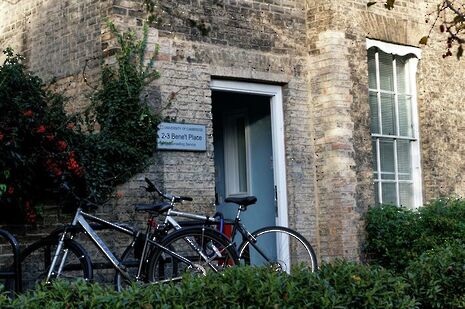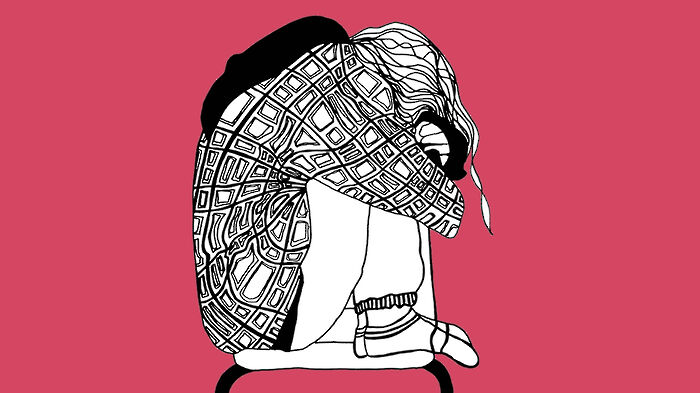New documentary on mental health at Cambridge premiers
Many of the film’s interviewees pointed to inequalities in mental health provisions across Colleges, which filmmakers cited as largely due to significant wealth disparities

Feeling Blue? Mental Health at Cambridge University was premiered in the Union Chamber on Saturday, to an audience of around 100 people.
The team behind the documentary are all students or recent graduates, and have created the film as part of a wider project on mental health at the University. The filmmakers conducted over 30 interviews with students, college staff and senior university officials to inform the documentary, alongside analysis of University Committee Minutes and the results of Freedom of Information requests.
Members of the Feeling Blue? team told Varsity that they aimed to “tell the mental health stories of people who felt forgotten, and to clarify a number of questions that, to the best of our knowledge, have gone unanswered” surrounding mental health. The film is intended to be “fundamentally subjective” in order to explore the “real, lived experiences of students”.
An accompanying document detailing the document's findings and what is still left unanswered has been produced, and the team is currently in talks with the University to officially present this document to them.
A spokesperson for the University told Varsity: “Student mental health is a priority area for the University and Colleges, and a meeting between Professor Graham Virgo and Dr Mark Wormald is due to take place with the documentary team when their findings will be discussed in depth”.
Having thus not yet been presented with the film or its findings they were unable to provide further comment, telling Varsity that they are “obligated to wait until that dialogue has happened”.
In the documentary itself, interviewees discussed problems they had found with the University’s intermission process, with some feeling pushed to intermit, and one student alleging that their College asked them to leave their accommodation within two days of choosing to intermit. These accusations were not put directly to the University for comment in the film.
Workload was also explored, with interviewees expressing a belief that success at the University is primarily based on academic achievement, with other forms of success not recognised. Concerns were raised that consistently high levels of stress and pressure are leading to ‘non-clinical’ or ‘situational’ depression among students.
The documentary focused heavily on undergraduate students, and in the Q&A session which followed the screening, while commending the filmmakers for the documentary, one graduate student drew attention to this side-lining of graduate students’ wellbeing.
During the process of making the documentary, the Feeling Blue? filmmakers faced difficulties locating a consistent source of information on University or College welfare policies, and were concerned that students may find the information even more difficult to access, especially at a time of mental health crisis.
In response to Dr Richard Partington, Senior Tutor of Churchill College, suggesting that the University would struggle to continue spending 10% more on mental health each year, the filmmakers pointed to places where money could be found. They claimed that their Freedom of Information research had suggested that £1.07 million was spent on academic success through funding scholars’ prizes in 2016-17.
They also told Varsity that they “hope to continue a dialogue with the University to address how students have been feeling, and answer a number of questions that we believe desperately need answers”.
Once they have officially presented the ‘Findings & Unanswered Questions’ document to the University, the film and unabridged document will be released.
 News / Right-wing billionaire Peter Thiel gives ‘antichrist’ lecture in Cambridge6 February 2026
News / Right-wing billionaire Peter Thiel gives ‘antichrist’ lecture in Cambridge6 February 2026 News / Cambridge students uncover possible execution pit9 February 2026
News / Cambridge students uncover possible execution pit9 February 2026 Features / From fresher to finalist: how have you evolved at Cambridge?10 February 2026
Features / From fresher to finalist: how have you evolved at Cambridge?10 February 2026 News / Epstein contacted Cambridge academics about research funding6 February 2026
News / Epstein contacted Cambridge academics about research funding6 February 2026 News / Churchill plans for new Archives Centre building10 February 2026
News / Churchill plans for new Archives Centre building10 February 2026










